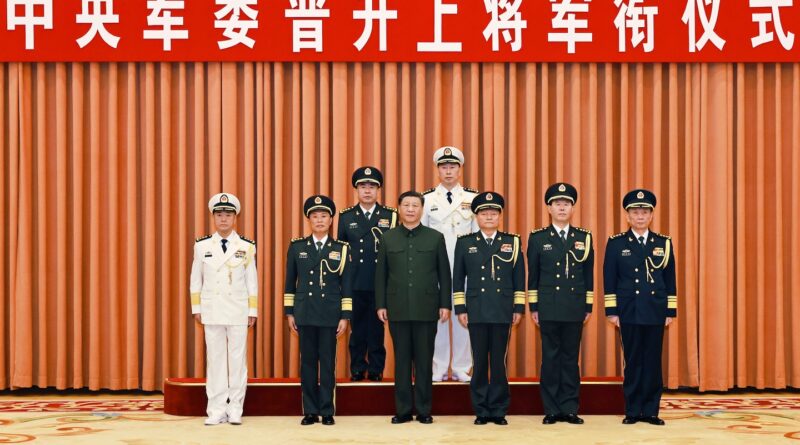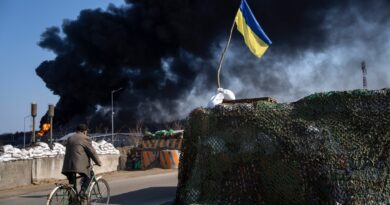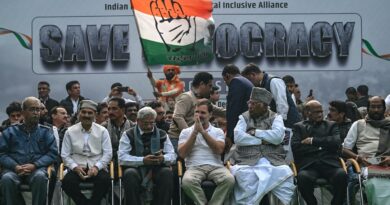What China’s new defense minister tells us about Xi’s military purge
The promotion Friday of Admiral Dong Jun, the 62-year-old former head of the Chinese navy, came alongside announcements that a dozen generals and senior executives from state-run military enterprises had been removed from the country’s legislature and top political advisory body.
What’s with the tumult at the top of the Chinese military?
The scale of this week’s personnel changes, announced at meetings of senior Chinese Communist Party officials in Beijing, hinted at the severity of the ongoing probe into military corruption that in recent months has targeted weapons procurement and the rocket force in charge of the country’s missile and nuclear arsenals.
China did not say why the previous defense minister, Li Shangfu, was removed from office in October after being absent from public view for two months.
But U.S. officials say Li probably was caught up in an investigation into bid rigging and lax oversight during the five years he was in charge of the Equipment Development Department, which is tasked with improving China’s military technology. High-ranking officials overseeing the rocket force that manages China’s nuclear arsenal were also replaced without warning in August.
Of the nine senior military officials who were kicked out of the National People’s Congress on Friday, all appeared to have direct or indirect connections to Li.
Some had worked in the Equipment Development Department under Li from 2017 to 2022; others were in the rocket force or space program.
“Something major must have occurred to precipitate this kind of purge,” most likely a major corruption scandal or intel leak, Lyle Morris, a senior fellow at the Asia Society Policy Institute, wrote on X, formerly Twitter.
What does this mean for China’s military strategy?
Experts on the Chinese military say that the reshuffle and Dong’s appointment are unlikely to significantly alter China’s ambitious military modernization program or its approach toward relations with the United States.
In China, the position of defense minister is largely ceremonial and mainly focused on military diplomacy and international engagement. High-level strategy and major decisions instead come from top-ranking members of the Central Military Commission, which is chaired by Xi.
Unlike his predecessor, Dong is not yet a member of the commission.
The unusual choice of a naval officer fits with a long-running shift toward prioritizing maritime power, which China sees as essential to achieving military supremacy in the Indo-Pacific and asserting its sovereignty claims over Taiwan, the island democracy Beijing considers its territory.
Dong, who has spent his entire career in the navy, has experience commanding the rapidly expanding fleets China uses to back up contested claims in the South and East China seas. He has also been involved in joint naval drills with Russia, which China sees as an important partner in its efforts to dominate the region.
What about the United States?
Military analysts say they expect Dong, as the new public face of the People’s Liberation Army, to push ahead with the recent renewal of military-to-military dialogue between China and the United States, which was agreed on when President Biden met with Xi in November.
But the fundamentals of the relationship are unlikely to significantly change, and promotions within the navy suggest China is increasingly focused on the South China Sea as an arena of military competition with the United States and its allies, the Eurasia Group wrote in a research note.
Efforts to soothe tensions remain precarious and could easily be derailed if China’s aggressive military tactics spark a fresh round of hostilities, analysts warn.
Achieving a reset in ties has been complicated by Beijing’s tense standoffs with the Philippines over contested islands, escalating saber-rattling around Taiwan, and frequent dangerous intercepts by Chinese ships and warplanes targeting the United States and its allies.




